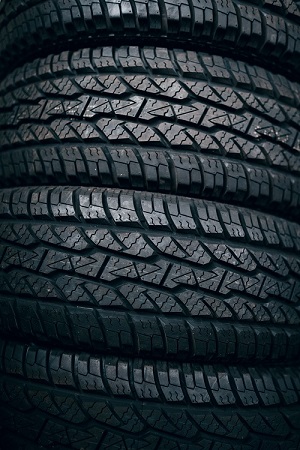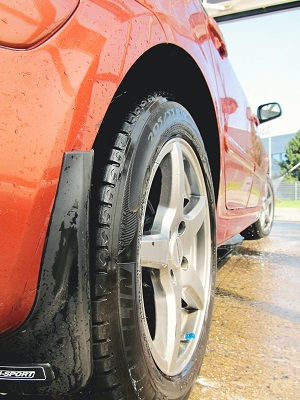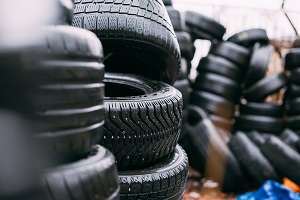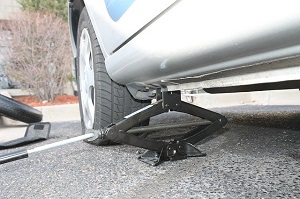Posted on 5/13/2021

It has happened to most of us. We're on our way to school or work, and we hear that dreaded sound of a flat tire or a blowout. Some sort of debris in the road has left you with a damaged tire and an immobile vehicle. This situation always brings on frustration. Now you must deal with getting your car to a tire repair shop. The tire has to be properly assessed to perform the necessary repair or replacement service. Depending on where the puncture is located and the severity of the damage, the tire will either only need a simple repair or be replaced. Tires are crucial to the safe performance of our vehicles. For the continued safety of your car, mechanics must utilize the best possible way to fix your tire. The availability of options leads to some debate over what is the "best" way to fix a tire and keep your vehicle safe. Is a plug repair sufficient, or do I need to replace the tire? Here are some considerations to determine which tire repair method is the best option for you. When ... read more
Posted on 4/15/2021

Determining your tire age is very important for your driving safety. Driving with a tire over six years old could be putting you and your passengers in danger. Tires dry rot with age from the inside out. When the tire gets older, it is exposed to the elements, and the strength of the bond between the rubber and the steel belts is reduced. This can cause cracks in the rubber, which may appear on the tire’s surface and can also appear out of sight within the structure of the tire. Keeping a record of your tires and understanding their age will help you save money on repairs and take proper care of your vehicle. Driving on damaged tires is extremely dangerous and can lead to a fatal accident. It is recommended that drivers have a professional auto mechanic inspect all tires that are in use for six years or more to ensure they are still safe for use. Proper tire maintenance will also help to keep your tires working effectively and lasting longer. Keep up with tire rotation, tire repairs ... read more
Posted on 9/28/2020

The tires on your vehicle and vehicles across the world, was a result of multiple inventors across several decades. Robert William Thomson invented the first vulcanized rubber pneumatic tire in 1845, but it was too costly and ahead of its time and attracted little interest. In the 1880’s John Boyd Dunlop was the inventor of the first practical inflatable tire for bicycles. Several years later, André Michelin and his brother Edouard were the first to use pneumatic tires on an automobile, but they were not successful in making them durable. It wasn't until Philip Strauss invented the combination tire and air-filled inner tube in 1911 that pneumatic tires could be used on automobiles with success. Tires are made of strong, flexible rubber attached to the rim of a wheel to provide a gripping surface for traction and serve as a cushion for the wheels of a moving vehicle. Tires offer your first and only contact with the road and allow effective steering, braking, accelerating, and turning ... read more
Posted on 8/31/2020

Many new cars are now missing a spare tire and are coming from the factory equipped with tires or inflator kits that claim to make a spare tire unnecessary. We usually don’t think about the need for a spare tire until we need it. You should always have a spare tire in your vehicle because you never know when you’ll get a flat or puncture and be on the side of the road stranded. A spare tire and wheel provide you with a direct replacement, allowing you to become mobile again until you get a tire repair service. Many spare tires for modern cars are smaller than normal tires to save on trunk space, gas mileage, weight, and cost, and they should not be driven on for long before replacement with a full-size tire. Don't wait until you're on the side of the road to invest in a spare tire. If your vehicle doesn’t come equipped with a spare, purchase a spare tire so you can safely replace a damaged tire, and travel to your nearest auto repair shop for proper service. Types of Spare Tires A Ful ... read more
Posted on 7/17/2020

Your tires are your car's only connection to the road. Taking care of your tires will save you money on gas and a smoother, safer ride for you and your family. Your vehicle’s tires affect how your vehicle steers, how it brakes, and how it hugs the road. Your tires need to have the correct air pressure, tread depth, tire balance, and wheel alignment to be safe and cost-effective. If your car is left unused for an extended period of time, know that your tires and other components will still require maintenance and upkeep. Leaving a car unused for a long period could leave it vulnerable to problems with your battery, brakes, and tires. Tires will be prone to deteriorate, lose air pressure, and develop flat spots. When you decide to start driving your vehicle again, instead of the smooth ride you expected, it will be all bumps, thumps, and vibration due to ineffective tires. Here Is What Happens to Tires When a Vehicle Is Left Unused Tire Deterioration Although you will ... read more